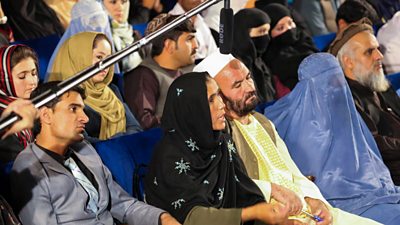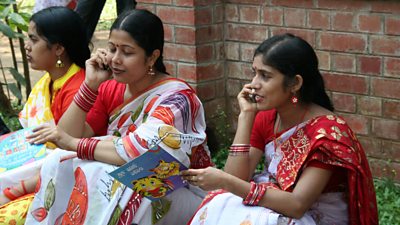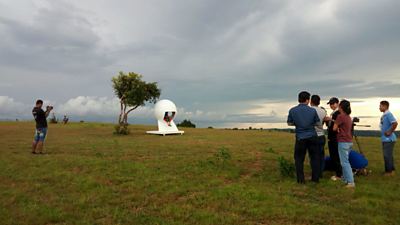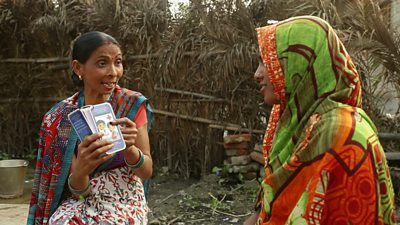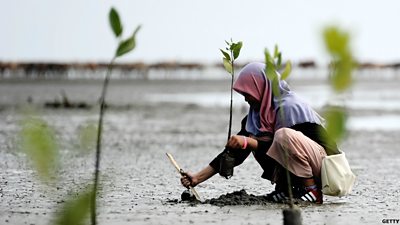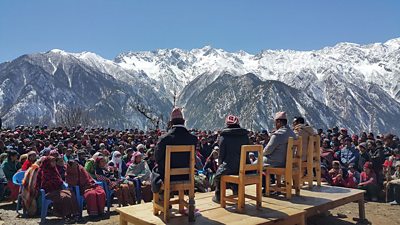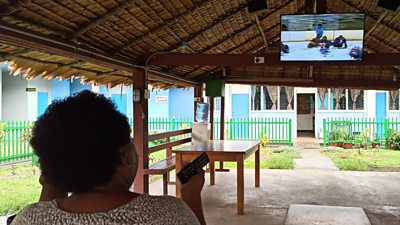“I didn’t know there was so much distrust among different ethnicities in Myanmar when I started the job, and my biggest challenge is to bring them together in a TV show and connect them, so that they understand that diversity is the strength of Myanmar, not a weakness.”
These are the words of Htet Htet Khine – a leading female journalist in Myanmar – who spent three years covering Myanmar’s complex peace process, and today spends her days in a Myanmar jail.
Before the recent military coup in Myanmar, Htet Htet Khine - a young, passionate, and outspoken woman from central Myanmar – worked hard to make her way in the emerging media sector in Myanmar. Khine started her career in 2010 as one of the few female journalists working with local news journals in a heavily censored media sector. In 2015, she saw hope for change when Myanmar, after decades of military rule and a 70-year civil war, opened up to the world.
Khine, along with many other women joining Myanmar’s media sector, was inspired, and determined to play a part in the journey for a new democracy. Khine took up a job as a junior radio producer at ��ѿ��ý Media Action on a programme for Myanmar youth who, for the first time in generations, had the chance to vote in a democratic election. After two years of hard work in radio, Khine won a job in TV and became the well-known lead presenter of ��ѿ��ý Media Action’s national television peace programme, Khan Sar Kyi (Feel It).
Showing war's impact
Khan Sar Kyi is a documentary and discussion programme which showed the devastating impact of Myanmar’s long war on the lives of people across the country. From 2016 to 2020, as the face of Khan Sar Kyi, Khine travelled with people in power - ministers, MPs, government and military officials - to remote conflict-affected areas in Myanmar, to see the places and listen to the stories of people whose voices were never before heard on national television.
She took military generals to refugee camps to show them the raw impact of conflict. She took ethnic armed group leaders to poor Burmese farmers to open their eyes to the economic cost of war. She took MPs and celebrities to remote village huts where people struggled daily with basic food and daily survival, in areas filled with land mines and harsh memories of the conflict that destroyed communities.
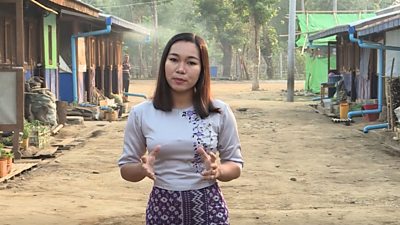
Life on the road
Life on the road was perhaps familiar to Khine – coming from a family whose parents migrated from place to place, looking for work. But her childhood experiences of living under a military dictatorship gave her only sanitised school textbook representations of Myanmar’s ethnic group festivals and dances. In her early years working for local news journals, Khine faced restrictions on travel, and had no way to get out and cover the wider stories she knew were out there. Working with Khan Sar Kyi, Khine said, brought to life the real challenges and frustration of people living in different parts of the country, and offered a way out of the years of war and conflict and a chance to move ahead.
This chance, however, suddenly dimmed. On 1 February 2021 the military again took control of Myanmar, in a coup that ousted the democratically elected government. Media agencies across the country were brutally and systematically targeted for shutdown and new laws drafted to restrict independent media coverage.
New laws and arrests
Khine was arrested in August 2021, along with 124 journalists in the past year across Myanmar – targeted by the military under draconian new laws which brought back censorship and made critical reporting of the authorities illegal.
Women make up 20% of arrested journalists, Some women faced beatings and harassment by authorities, and many have lost their property, belongings and their jobs. Contact with family was limited, along with access to legal representation.
Today Khine remains in prison awaiting trial, her words and stories silenced.
Yet everywhere across Myanmar, women journalists continue the story. They are covering the news at protests, in conflict zones, at markets and on the streets. They risk their lives and security to raise the voices of those once again suffering from war. They have suffered intensely themselves but continue bravely.
The words of one of Khine’s favourite quotes rings true in Myanmar: “Freedom is never given – it is won”.
Htet Htet Khine was sentenced to a total of six years' hard labour in September 2022, after more than a year in detention. ��ѿ��ý Media Action remains concerned for her safety and well-being. Read our statement at the time of the sentencing, and one year on.
Learn about our projects in
Search by Tag:
- Tagged with Myanmar Myanmar
- Tagged with Asia Asia
- Tagged with Women and girls Women and girls

